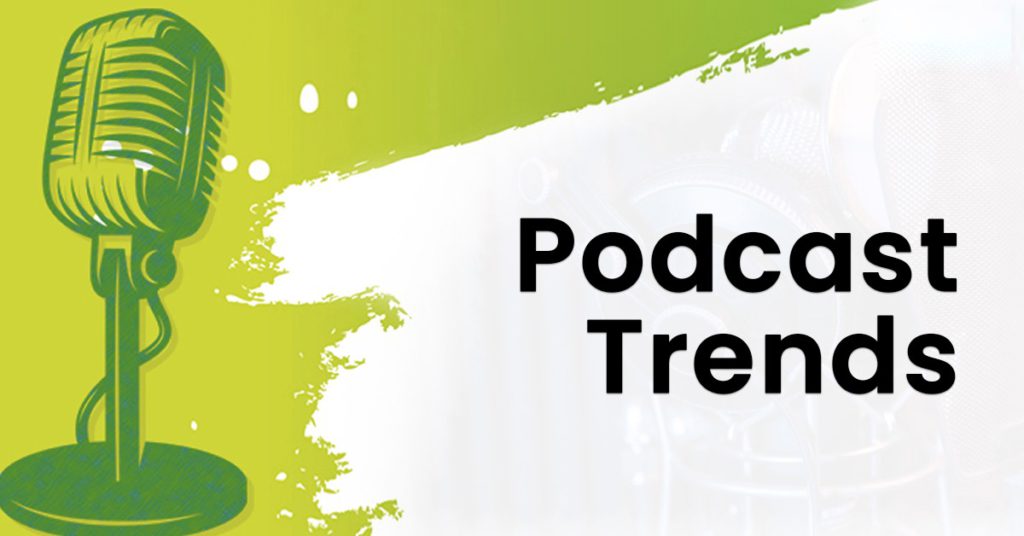Podcasting has revolutionized the way we consume audio content. What began in the early 2000s as a niche hobby, has evolved into a mainstream form of entertainment, education, and communication. From news and storytelling to interviews, true crime, and specialized hobbies, Podcasts cover an array of topics and genres. Essentially a digital audio series, what sets it apart is its accessibility; listeners can tune in at their convenience, making it a versatile and personalized medium. Podcasting is an excellent vehicle for authentic, intimate storytelling. And the best part is that anyone can start a podcast.
Meet Pod.one
Before one hits that record button one needs three things; Knowledge, Planning, and Preparation. More than technology, one needs the right strike to create a quality podcast that represents your unique creative expression that will resonate with your listeners too. And finally, the significant need for branding, positioning, and launching it on a powerful publishing platform completes the cycle. Pod.one facilitates all this for you. You can then host your podcast on the top Indian and global platforms. Pod.one will help you with the right tools for podcast distribution and analytics.

Also Read: International Artist’s Day Special: Exploring The Artistic Odyssey With Pranita Kocharekar
The Social Nation team spoke to Aakanksha Saxena, Lead Podcast Programming, Pod.one, as well as 3 prolific podcasters on the platform – Dr. Anusuya Hazarika, Dishank Timble, and Kalyanjit Hatibaruah.
Dr. Anusuya is a seasoned psychologist with 12+ years of experience. She’s a prolific writer and advocate for mental and emotional well-being through her blog, social media, and podcast – Your Mental Health. She’s also a sought-after guest speaker on TV and radio shows. Dishank is an accomplished content creator, storyteller, and the dynamic host of the Kissey podcast. commitment to sharing diverse narratives, from tales of resilience to explorations of personal growth, has earned him a dedicated following. Mr. Kalyanjit is a Web3 Tech Management Consultant and Influencer with 25+ years of experience in different technology stacks and blockchain frameworks. Web3 Unleashed is a very informative podcast run by him on Pod.one.

Let us take you through our conversation with the Pod.one Lead: Aakanksha Saxena
For someone who is just taking their first steps in the industry, what should their first focus be?
Well, actually a lot! Defining podcast concept, planning, research, software, equipment, editing, social media promotions, guest profiling, script, learning & improvement, and consistency. Since you asked about “focus”, I will say consistency and that can happen when you delegate all the other tasks. Like I always say, the creator is the soul & sole driver of the Podcast & Pod.one will facilitate all the tasks.
How does Pod.one help podcasters in terms of hosting, distribution, and analytics?
Pod.one helps in launching the podcast which includes, concept, planning, research, software, equipment, editing, and social media promotions and the list is long. Then comes hosting & distribution, so in the podcasting industry, Pod.one is the only creator-oriented hosting space that is free of cost. Since we (are the only ones in the industry who) follow the unique model of revenue sharing, we don’t charge any upfront fees from creators.
We offer distribution on all leading platforms like Spotify, Amazon, Audibles, apple Podcast, I-heart Radio, etc. Since we work closely with these platforms & their editorial & content teams so we offer timely feedback to podcasters on their performance & statistics.
Are there any current trends in the podcasting landscape that podcasters should be aware of?
To list a few:
Diverse Content: A wide range of content was being produced, covering virtually every conceivable topic and interest.
Big Players and Exclusive Content: Major companies like Spotify, Apple, Amazon, and Google/YouTube are investing heavily in the podcasting space. They were acquiring content, signing exclusive deals with creators, and investing in technology and discovery features.
Niche and Hyper-Targeted Podcasts: Many podcasts were catering to niche audiences or targeted communities.
Short-Form and Micro Podcasts: In addition to traditional long-form content, shorter, bite-sized podcasts were gaining popularity, catering to listeners with limited time or short attention spans & they are doing very well on social media.
Social Audio Integration: Bit-sized audio Grams/Reels/Shorts are gaining a lot of popularity.

Can you give an average monthly income that a mid-sized podcaster makes? What are the different niches that podcasters are currently thriving in?
Podcasts are of two types, Podcast as a business and Podcast for business. Podcasts for business are the ones seeking engagement, and building community, and could be key instruments in establishing the founder/key team members as brands. On the other hand, podcasts as business implies creators, who can expand their content reach or professionals who can benefit from it. While it is difficult to quantify as monetization is yet to arrive in India on podcasting platforms, with Youtube announcing Podcasts on YT Music is a great sign for a lot for creators to engage more in Podcast.
What are the different niches that podcasters are currently thriving in?
The highly consumed ones as per the statistics from Spotify & Amazon are knowledge and learning, self-improvement, Motivation, Business & Finance. Bollywood, Influencer life, Sports, and Spirituality are always popular. Fiction or narration-based podcasts mostly do well but they require great skill & extra effort in terms of scripting & production. But like I said in the US, Australia the more targeted your podcast is the more engagement you get as it is a long format content. So even if your podcast theme is as niche as “left-handers”, go for it.
After gaining all of that insight, we decided to speak with podcasters who are running their channel daily and have generated massive success. These tips from them will be extremely beneficial for someone who wishes to start their podcast journey.

How do you pick a niche when starting out?
Mr. Kalyanjit takes you through the points to consider when picking a niche.
– Consider your interests and passions. The best niche is one you genuinely care about and want to learn more on. Think about topics you love talking about and could discuss for hours.
– Look for underserved niches. Rather than go into an overly competitive space, identify subjects that have fewer dedicated podcasts already. Search podcast directories to get a sense of saturation.
– Leverage your expertise. If you have in-depth knowledge, experiences, or skills related to a particular subject, consider making that your niche. You’ll provide a unique perspective.
– Observe trends and emerging topics. New technology, social movements, laws, discoveries, etc can all make for great niche podcast topics if you jump on them early.
– Define your target audience. Who do you want to serve and what do they care about? Tailor your niche to resonate with that demographic.
– Consider search volume and demand. Some niche topics have more interest and searches than others. Use Google Keyword Planner to assess this.
The goal is to find a focused, feasible niche that fills a need but has limited competition. Take your time researching before committing to maximize your chance of success.
How do you start your podcast journey without having to invest in all the equipment in the first go?
Dishank says, “You have the guidance of experienced podcasters who are ready to talk and share their experience. Start with basic equipment like a camera or phone; investing comes later. Equip yourself with knowledge and ask for help when needed.“
Dr. Anusuya says, “All I bought was a cheap microphone from Amazon and that’s it and of course the phone I already use. I, too, thought you need to invest a lot of money however once Pod.one told me all I need is a mic, a phone, my knowledge, opinion, and voice, there was no looking back.“

What is the process of structuring an episode, can you please break it down for someone who’s looking at building a career in this industry?
As per Dishank, “Structuring an episode is like the Bhagavad Gita’s verses. Each episode should have a clear theme, like a verse’s message. Plan an introduction (like the battlefield setting), the main content (Krishna’s teachings), and a conclusion (Arjuna’s transformation). Stay organized and convey your message effectively.“
Mr. Kalyanjit has explained the process in detail:
Pre-Production:
– Choose your topic and outline the episode
– Conduct interviews
– Research the topic thoroughly
– Write a script or bullet points
– Promote the episode
Recording:
– Set up your equipment. Do a test run.
– Kick off the episode by introducing yourself, the topic, and the episode structure.
– Walk through your content.
– Include interviews with guests.
– Wrap up by summarizing key points and let listeners know what to expect next.
Post-Production:
– Edit the raw recording. Insert audio elements like music.
– Add your branded podcast intro and end credits on the edited episode.
– Export the completed audio file in the appropriate format (MP3, WAV, etc).
– Write the episode description for your podcast host platform.
– Publish and promote it.
About my Process:
I don’t do the edits anymore. We have a great team of Pod.one who does the audio editing. I just need to record, clean it up in audacity, and remove the noises and other repeating parts.
How do you stay consistent with your podcast schedule, and do you have any advice on time management?
“Well planning is the key, I usually have my content ready for a couple of episodes and record also. Self-motivation and self-discipline help,” says Dr. Anusuya.
As per Dishank, “Staying consistent is about discipline, like having determination. Schedule your episodes in advance and prioritize them. Effective time management is crucial; dedicate time for your podcast just as mind and motive committed to his purpose.“
How do you measure the success of your podcast, and if so, what strategies have been most effective for you?
There are a few key metrics Mr. Kalyanjit looks at to measure the success of a podcast:
Downloads – The number of downloads per episode tells you how many people are listening. This is a basic metric all podcasters should track. Aim for steady growth over time.
Listen-through rate – Seeing how much of your audio people listen to on average before dropping off indicates your ability to engage. Goal is over 50%.
Reviews and ratings – Getting more positive reviews and 5-star ratings helps with visibility. Ask happy listeners to leave reviews.
Subscribers – A growing list of email or app subscribers shows you’re building an audience. Promote subscribing.
Social media engagement – Likes, shares, and comments about your show can help grow its reach. Make sharing easy.
Website traffic – If you have a site, monitor traffic around new episodes to see if interest aligns with downloads.
Surveys – Poll your listeners to get direct feedback on what they like, want more of, suggestions, etc.
Some effective strategies have been doing guest swaps with other podcasters to cross-promote, pitching my show to be featured on related podcasts, and reaching out for feedback from listeners. Testing different ideas and tracking metrics is key. I adjust based on what moves the needle.”
What are some common mistakes that podcasters make early on in the journey, and how would you advice on avoiding these?
Dishank advises saying, “Avoid common mistakes like compromising your authenticity. In life, our karma emphasizes following our path sincerely which derives authenticity. Similarly, stay true to your podcast’s purpose and values. Avoid overcomplicating things, keep your message clear, and evolve by learning from feedback and experiences. Just keep on doing what is your karma and don’t fear any result or outcome as you focus on karma you shall do it with dedication and you will be avoiding mistakes.“
Aren’t these tips and advice by seasoned podcasters extremely helpful and insightful? These are sure to help you kickstart your podcasting journey. Don’t wait any longer, pick what you’re most passionate about and start your podcast now!


